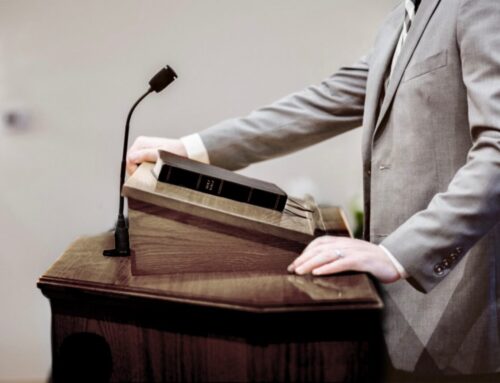Go, Tell It on the Mountain
Traditional spiritual, stanzas written by John W. Work II
Refrain:
Go, tell it on the mountain,
Over the hills and everywhere;
Go, tell it on the mountain
That Jesus Christ is born.
While shepherds kept their watching
O’er silent flocks by night,
Behold, throughout the heavens
There shone a holy light.
The shepherds feared and trembled
When, lo! above the earth
Rang out the angel chorus
That hailed the Savior’s birth.
Down in a lowly manger
The humble Christ was born,
And God sent us salvation
That blessed Christmas morn.
Short Name: John Wesley Work
Full Name: Work, John Wesley, 1873-1925
Birth Year: 1873
Death Year: 1925
John W. Work, Jr. (b. Nashville, TN, 1872; d. Nashville, 1925), is well known for his pioneering studies of African American folk music and for his leadership in the performance of spirituals. He studied music at Fisk University in Nashville and classics at Harvard and then taught Latin, Greek, and history at Fisk from 1898 to 1923. Director of the Jubilee Singers at Fisk, Work also sang tenor in the Fisk Jubilee Quartet, which toured the country after 1909 and made commercial recordings. He was president of Roger Williams University in Nashville during the last two years of his life. Work and his brother Frederick Jerome Work (1879-1942) were devoted to collecting, arranging, and publishing African American slave songs and spirituals. They published two collections: New Jubilee Songs as Sung by the Fisk Jubilee Singers (1901) and Folk Songs of the American Negro (1907).
Bert Polman
Notes
Scripture References:
all st. = Luke 2:8-20
ref. = Matt. 28:19
The text of this beloved spiritual was first published in Folk Song of the American Negro (1907), a study of African American folk music by John Wesley Work, Jr. (PHH 476). The song may date back to earlier sources, but evidently the original text was lost. According to Edith McFall Work, widow of John Wesley Work, III:
the verses of these songs were published by John Work, II, in place of the original ones which could not be found. In 1940 John Work, III, had the songs copyrighted and published [at 215] in his book American Negro Songs.”
-Companion to the United Methodist Hymnal, p. 360
In American Negro Songs and Spiritual (1940), John Wesley Work, III, attributes the newer text to his uncle Frederick J. Work. “He may have composed it” [the tune], wrote J. W. Work, III. “I know he composed the verses.” John, III, recalled that when he was a child, the students at Fisk University began singing this before daybreak on Christmas morning, going from building to building. Later, his arrangement for use in choral concerts by the Fisk Jubilee Singers helped to popularize the spiritual.
The refrain theme comes from Old Testament passages in which praise to God for his acts of deliverance was often shouted, both literally and metaphorically, from the mountaintops (Isa. 42:11). While the three stanzas tell the essence of the Christmas story, the refrain underscores the missionary impetus of the Christian church: “go and make disciples of all nations” (Matt. 28:19). The “go, tell,” which initially applied to the singers caroling on the university campus, is a signal for us to leave the comfortable confines of Christian worship and “go, tell” the message of Christ’s redemption to the whole world.
Because of the spiritual’s oral tradition, variants in text and melody exist. A textual variant for “Go, Tell It” is an Easter version with the following refrain text:
Go, tell it on the mountain,
Over the hills and everywhere;
Go, tell it on the mountain
That Jesus lives again.
Liturgical Use:
Christmas morning; a Christmas candlelight service; “carols from many lands” service; the refrain could be used by itself as a chorus on Christmas Day, or it could be combined with the Easter refrain version (see above) and used during worship services that focus on missions.
—Psalter Hymnal Handbook
Note: The book American Negro Songs and Spirituals: A Comprehensive Collection of 230 Folk Songs, Religious and Secular, with a forward by John W. Work (1940), states that “These verses were supplied by John Work Sr. in place of the original ones which could not be found.” (p. 215).







Leave a Reply, please --- thank you.